Home » Human Development and Relationships » Behavioral Health and Well Being
Behavioral Health and Well Being
Mental Health First Aid
Identify. Understand. Respond. Mental Health First Aid is a skills-based training course that teaches participants about mental health and substance-use issues. Just as CPR helps you assist an individual having a heart attack, Mental Health First Aid helps you assist someone experiencing a mental health or substance use-related challenge. In the Mental Health First Aid course, you learn risk factors and warning signs for mental health and addiction concerns, strategies for how to help someone in both crisis and non-crisis situations, and where to turn for help.
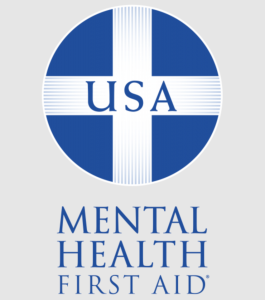
Adult Mental Health First Aid
Mental Health First Aid for Adults teaches people how to recognize signs of mental health or substance use challenges in adults ages 18 and older, how to offer and provide initial help, and how to guide a person toward appropriate care, if necessary. In this highly interactive workshop, participants use scenarios to put the 5-step action plan into practice, in both crisis and non-crisis situations. Topics of discussion include anxiety, depression, psychosis, and addictions.
Contact Tracy for upcoming class dates or to sign up to host a class at tracy.henegar@wisc.edu.
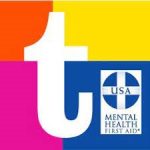
Teen Mental Health First Aid
Created by David Coy, School District of Superior Communications/PR Specialist
teen Mental Health First Aid (tMHFA) teaches teens in grades 10-12, or ages 15-18, how to identify, understand and respond to signs of mental health and substance use challenges among their friends and peers.
Extension Douglas & Bayfield Counties are currently offering tMHFA in Bayfield, Superior, and Washburn High Schools. If you’d like to explore the possibility of bringing tMHFA to your High School, contact Tracy Henegar at the email below.
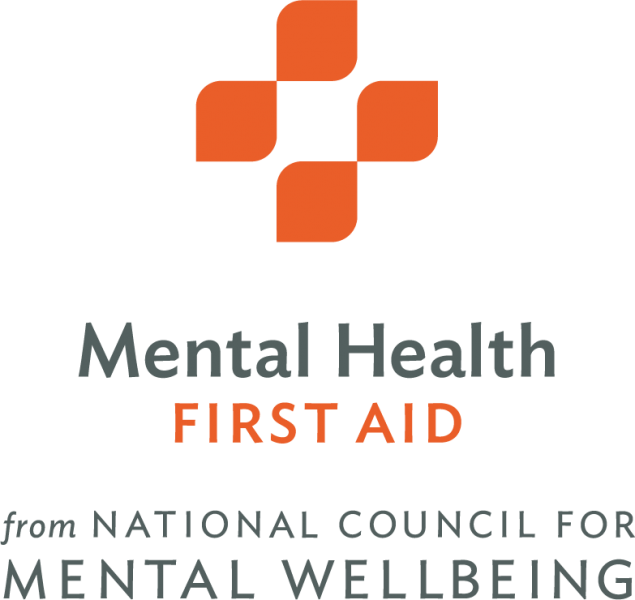
Youth Mental Health First Aid Training
Youth Mental Health First Aid is designed to teach parents, family members, caregivers, teachers, school staff, peers, neighbors, health and human services workers, and other caring citizens how to help an adolescent (age 12-18) who is experiencing a mental health or addictions challenge or is in crisis. The course introduces common mental health challenges for youth, reviews typical adolescent development, and teaches a 5-step action plan for how to help young people in both crisis and non-crisis situations. Topics covered include anxiety, depression, substance use, disorders in which psychosis may occur, disruptive behavior disorders (including AD/HD), and eating disorders.
Contact Tracy if you would like to host a class or to learn when the next public class is being held.
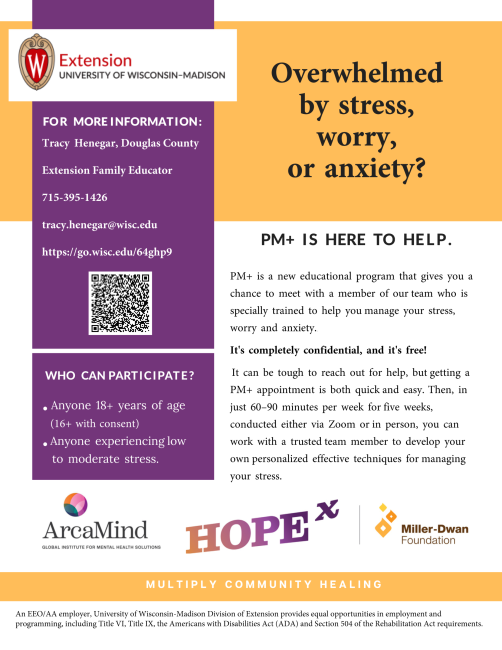
PM+ is here to help!
PM+ is a new educational program that gives you a chance to meet with a member of our team who is specially trained to help you manage your stress, worry and anxiety. It’s completely confidential and free.
To register for a class go to https://go.wisc.edu/64ghp9 to fill out our interest form, or call Tracy Henegar at 715-395-1426.
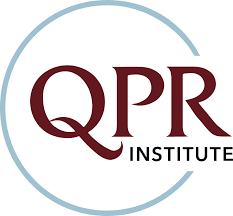
QPR Suicide Prevention Training
UW-Madison Division of Extension Douglas County is now offering QPR Gatekeeper Training for Suicide Prevention for any adults that would like to learn how to save the life of a youth or adult experiencing a suicide crisis in our community. Gatekeepers can include anyone who is positioned to recognize and refer someone at risk of suicide (e.g., parents, friends, neighbors, teachers, coaches, caseworkers, barbers, bartenders, co-workers, etc.).
Sessions will be offered to both adult and youth serving audiences and can be provided either virtually or in person. Extension is seeking organizations to sign up their group for a 90 minute in-person or virtual class. Learn more about upcoming workshops on our website, douglas.extension.wisc.edu, or contact Tracy Henegar to set up a class for your organization: Phone: 715-395-1426
Extension is currently able to provide this training to our community free of charge thanks to generous funding provided by the Duluth Superior Area Community Foundation as part of the Miller Dwan Foundation’s Live Well! Northern WI initiative.
QPR is a suicide prevention training that teaches three simple steps anyone can learn to help save a life from suicide: Question, Persuade, and Refer. Just as people trained in CPR and the Heimlich Maneuver help save thousands of lives each year, people trained in QPR learn how to recognize the warning signs of a suicide crisis and how to respond in order to save a life. Tracy Henegar, Extension Educator, said, “We’ve seen the impact of suicide in our community, and we know that when someone dies by suicide, family, friends, co-workers and the community as a whole can experience a wide range of difficulties in coping with that loss, including symptoms of depression and anxiety and even suicidal thoughts. In less than two hours, you can be empowered with the information you need to help save a life!”
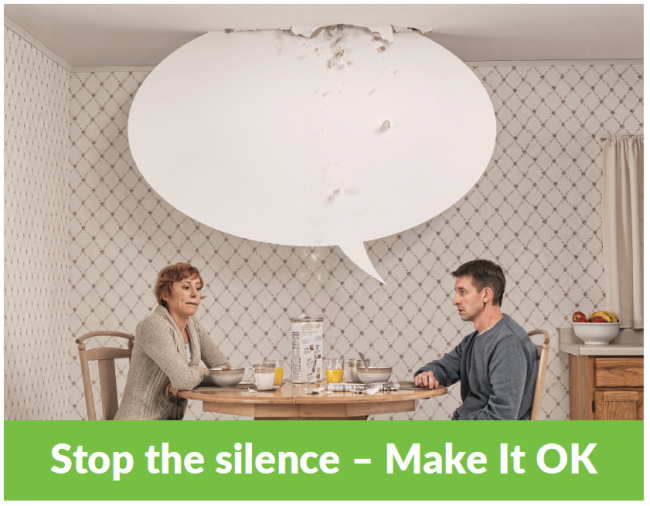
Make-It Ok Zoom Workshops
Do you want to help reduce the stigma of mental illness? Do you want to learn more about how to Make It OK to talk about mental illness? Request an online Zoom session on how you can Make It OK in our community.
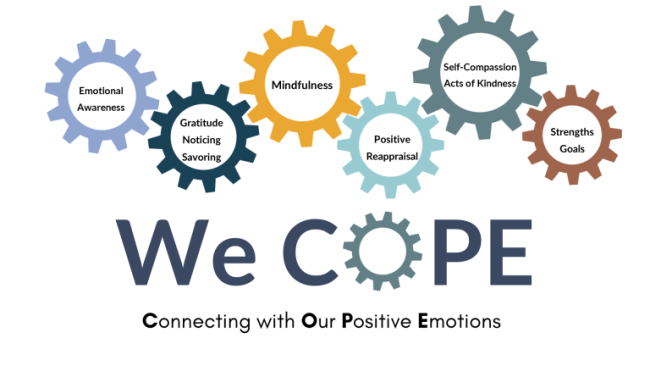
WeCOPE
The next virtual class is on June 25-July 30, 2025 from 11:30 a.m.-12:30 p.m.
Register at go.wisc.edu/15KCUE
WeCOPE is an interactive program that helps adults cope with life stress. WeCOPE has been shown to reduce stress and depression, increase positive affect, and improve health behaviors. Managing life’s challenges in healthy ways allows participants to take better care of themselves and others.
This 6-week program meets via Zoom, once a week for 1 hour. These sessions encourage practicing skills such as mindfulness, savoring, positive reappraisal, gratitude, and goal setting among others. Participants gain the most benefit when they are able to commit some time outside of class each week practicing the skills we review in class.
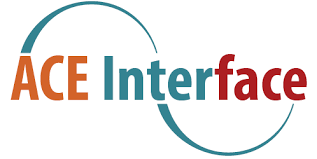
Adverse Childhood Experiences (ACEs)/Trauma Informed Care (TIC)
ACE Interface – the Ace Interface workshop lays a foundation of understanding about the research on Adverse Childhood Experiences (ACEs) and science of resilience, and it promotes understanding and application of the science to improve health and wellbeing across the lifespan. Designed for community system change, it evokes new ways of thinking, compassion, hope, and motivation to act. This 3-6 hour training can be customized for your organization. A shorter, sneak-peek, is available, as well.
Becoming Trauma-Informed – Would your organization like to explore what it means to become trauma-informed? What are the foundational principles? What are you already doing well, and what are some areas where you could make change toward becoming more trauma-informed. Whether you are in healthcare, education, law enforcement, non-profit, etc., trainings can be customized to fit your group’s needs.
WI Office of Children’s Mental Health Tip Sheets
Supporting Child Well-Being Through Covid-10 Grief
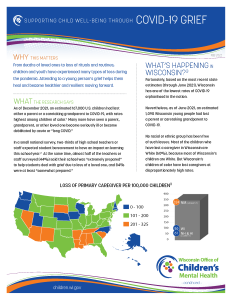
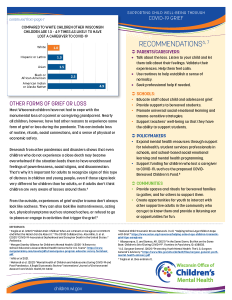
CLICK HERE for a PDF of this flyer
To schedule an appointment, arrange a workshop/training or ask a question contact:
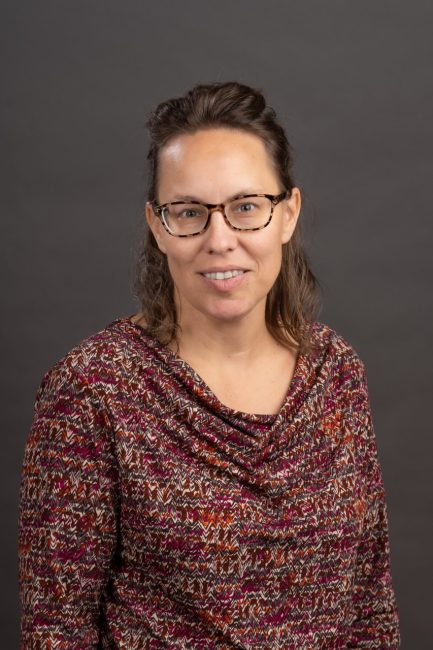
Tracy Henegar
UW-Madison Extension Douglas County
Human Development & Relationships Educator
1313 Belknap St Room 107
Superior, WI 54880
715-395-1426
tracy.henegar@wisc.edu
711 for Wisconsin Relay (TDD)




